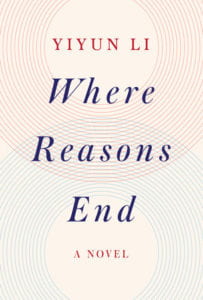Yiyun Li Grapples with Loss in “Where Reasons End”

By Freddy Caione
Yiyun Li, in her most recent novel, “Where Reasons End,” delves into the pain of losing her 16-year-old son to suicide. Narrated by a mother whose son has recently taken his own life, this heartfelt book becomes the only remaining medium through which Li can converse with her child. Li writes, “We once gave Nikolai a life of flesh and blood; and I’m doing It over again, this time by words.” She creates a moment outside of the liminal journey of life towards death in order to convey a world outside of time – “a world made up by words, and words only. No images, no sounds.”



